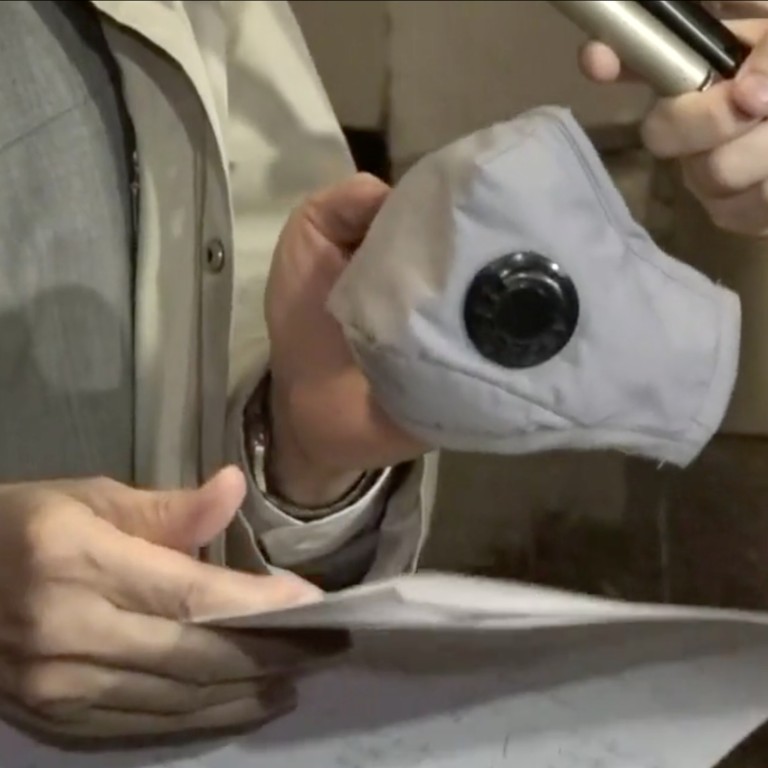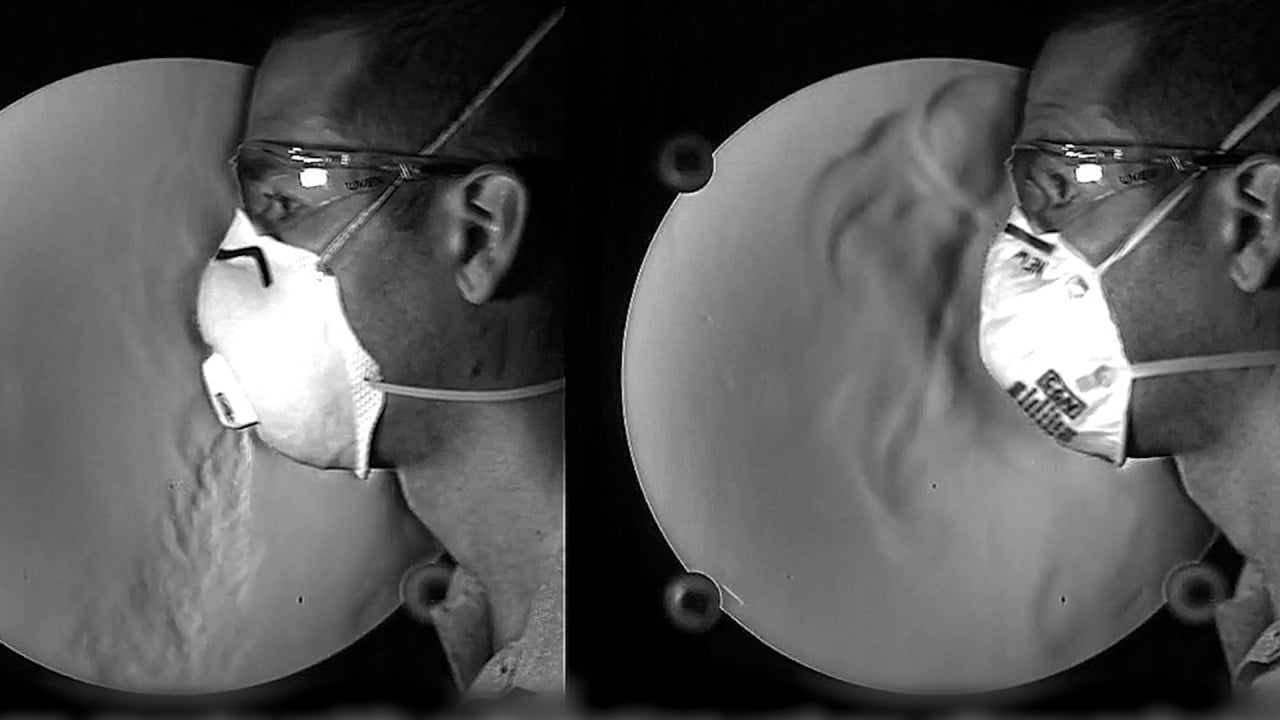
No need to be selfish in choice of coronavirus masks
- The type of mask worn at a Hong Kong quarantine hotel has been blamed for a cross-infection, underlining the need to wear face coverings that are effective and safe
Wearing a mask has long been recognised as pivotal to Hong Kong’s success in keeping Covid-19 largely under control. But with the pandemic dragging on for nearly two years, the practice may have been taken for granted by some.
The use of a mask of a “selfish” design, which filters air breathed in, but not out, by a guest has been blamed for a recent cross infection at a quarantine hotel. The case underlines the need for renewed awareness of the proper use of masks during a prolonged battle.
The 36-year-old man from South Africa wearing the reusable mask was suspected to have infected another guest in an opposite room at the Regal Airport Hotel. Leading microbiologist Professor Yuen Kwok-yung described the type of mask as “selfish”.
Thankfully, it did not result in a wider outbreak, but guests in 12 other rooms on the same floor had their isolation period extended for another 14 days as a precaution.
We trust no one would deliberately wear a mask that is harmful to others, but medical experts had raised questions last year about the type concerned. However, the problem with the design was apparently unknown to many until highlighted by Yuen following a site inspection.
The government has rightly responded to calls to ban the use of such masks by those in quarantine. Indeed, if the design is only meant to filter dust and particles, it should not be worn in the hope of avoiding infection.
The public was still scrambling for masks during severe shortages at the start of the pandemic last year. Today, there are more than enough. The severe acute respiratory syndrome (Sars) epidemic in 2003, which saw 299 people die from a highly infectious respiratory disease, has taught the city the importance of wearing protective masks.
Even though there have been no local infections for some time, most still wear them wherever they go. That said, there are those who still fail to wear masks properly. Some people may attach more importance to colour or style rather than level of protection.
The “selfish” mask episode is a timely reminder that a quality face covering remains the first line of defence in a long battle.


